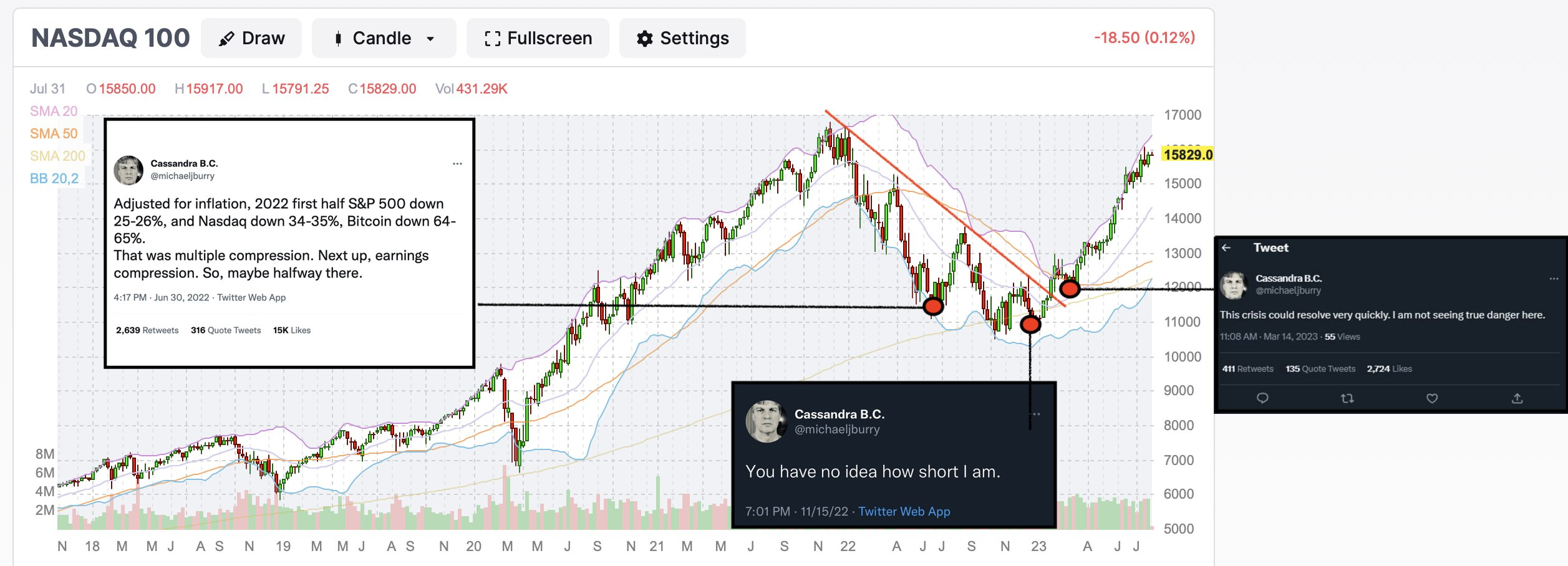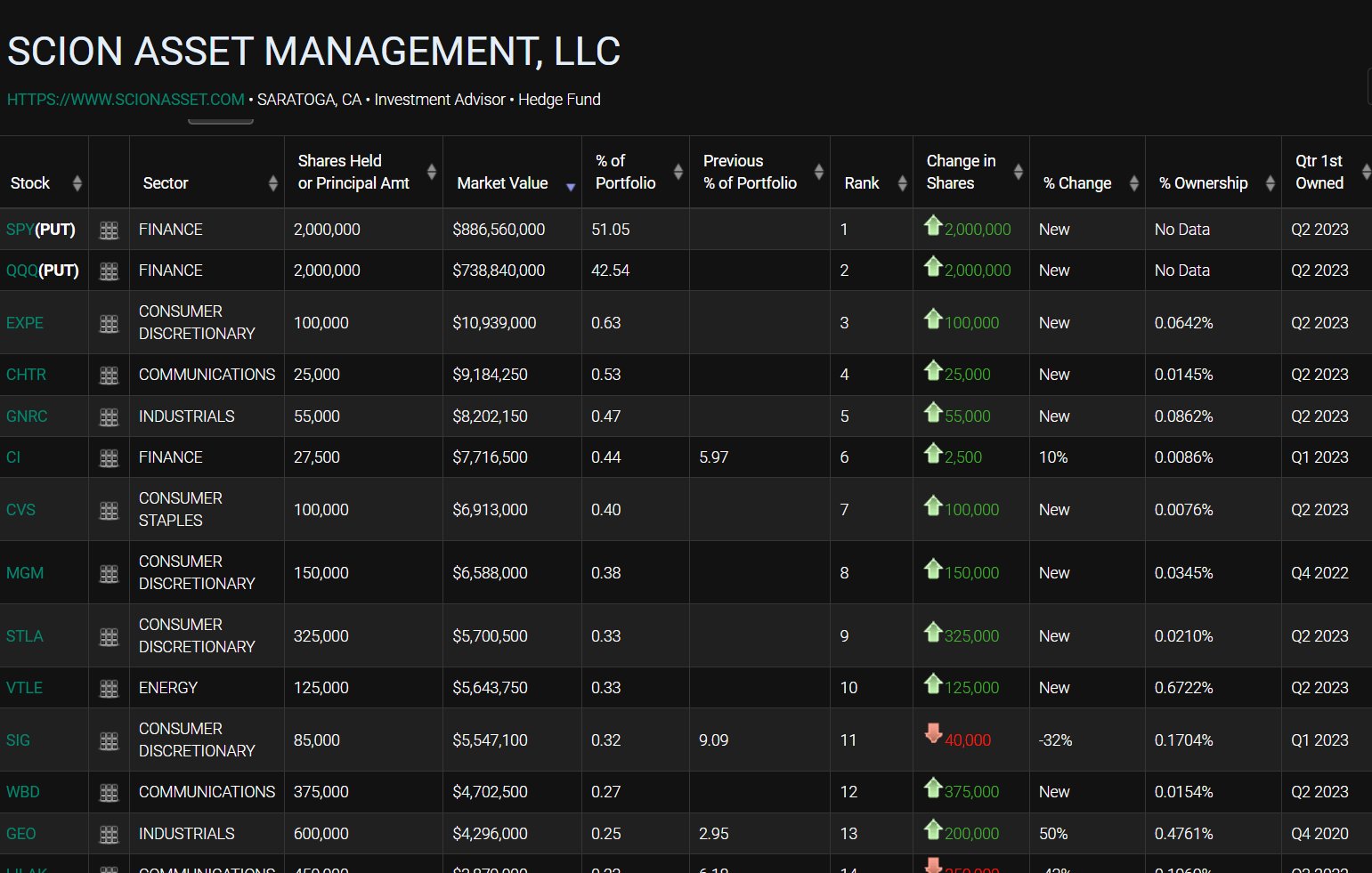Michael Burry puts on another BIG SHORT
We've all seen the movie (or read the book), The Big Short, which follows the few investors who predicted, and massively profited from, the Global Financial Crisis in 2008.
One of those investors was Michael Burry, the market savant who shorted the US housing market by convincing investment banks to sell him credit default swaps against subprime mortgages.
He's just gone again. This time, he's got the US equity market in the crosshairs.
According to a recent SEC filing Burry has two active put options on two ETFs that track the S&P 500 and Nasdaq 100. Combined, the options have a notional value of US$1.6 billion.
As this wire explains, whether this is a BIG SHORT or a BIG HEDGE is open to interpretation. But it might not make a difference - it's still a bet against the market.
An enviable record
A self-proclaimed value investor, Burry's success has come from spotting overvalued stocks and sectors - and shorting accordingly.
Burry's success as a short-seller actually predates his bet against America's subprime market.
As author Michael Lewis writes in The Blind Side:
"In his first full year, 2001, the S&P 500 fell 11.88%. Scion was up 55%. The next year, the S&P 500 fell again, by 22.1%, and Scion was up again: 16%. The next year, 2003, the stock market finally turned around and rose 28.69%, but Burry beat it again, with returns of 50%. By the end of 2004, he was managing $600 million and turning money away."
Then came the big one - Burry's bet against the US housing market that yielded him a personal net profit of about US$100m and his investors US$700m.
He hasn't always been right. While it's hard to know when he exercises his short positions, in 2022 he publicly stated that he's massively short the market ahead of an earnings cliff. As we all know, that hasn't eventuated.
.png)
The BIG SHORT 2.0
In traditional short selling, an investor borrows stock from a broker with the obligation to return it at a later date. They then sell the borrowed stock on the market in the hope that it will fall in price. Finally, they buy the stock back on the cheap, return it to the broker, and pocket the difference less fees.
A put option, on the other hand, is a contract that gives the holder the right to sell an underlying security at a predetermined price, also known as the strike price.
The holder thereby preserves capital by exercising the option to sell securities at the strike price.
But (and here's where it gets a bit confusing), investors can use puts as a shorting instrument. If the value of the underlying security falls, these options become more valuable on the secondary market. So you're in effect profiting from a fall in the market.

According to a 13F filing at the U.S. Securities and Exchange Commission, Burry bought $890m of SPDR S&P 500 ETF puts and $740m of INVESCO QQQ ETF puts.
Twitter proceeded to spit out its coffee at this, labelling it a $1.6 billion short.
So while the notional value of the positions, based on the underlying trading price at June 30 close, is $1.6 billion, what we don't know is when the contracts were entered into and at what strike price.
Whatever the case, Burry is worried about the market, and he's made moves accordingly. If he's right, we might be getting another movie.

